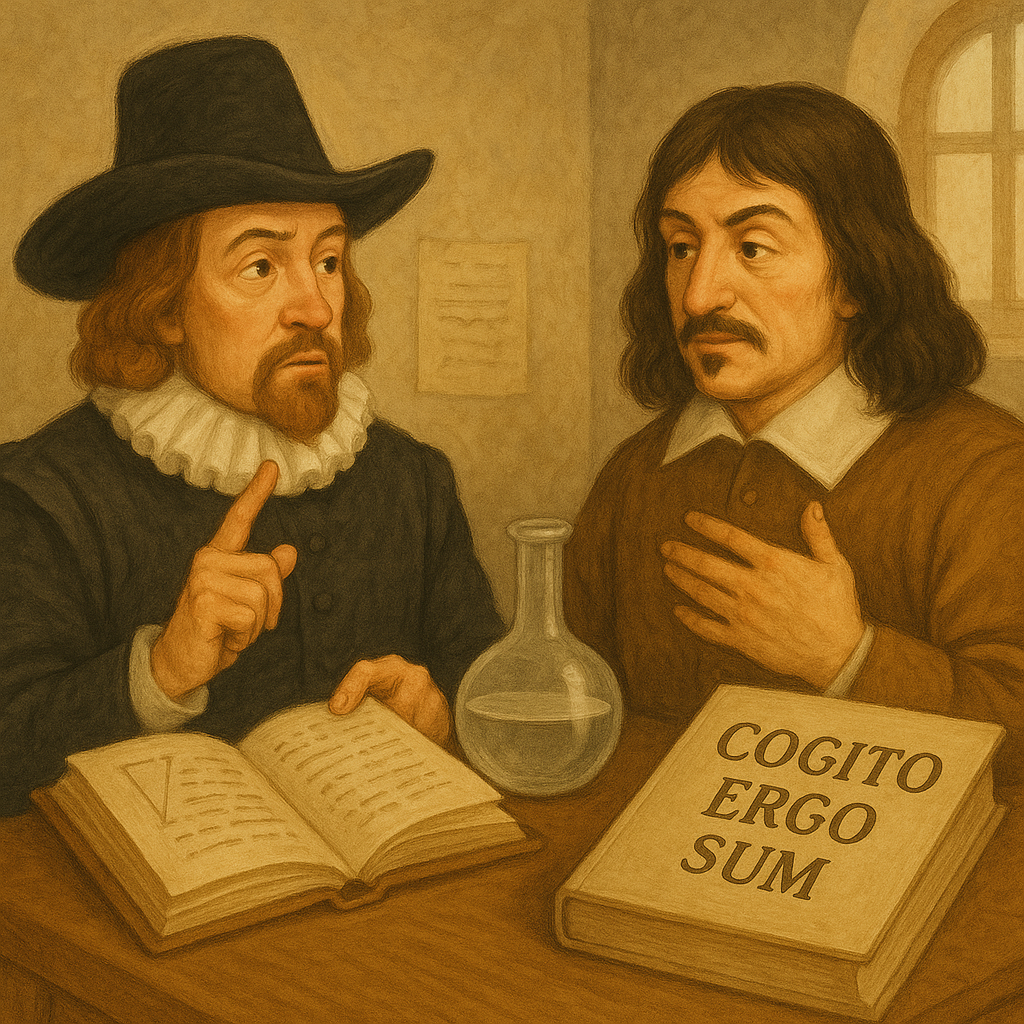Lesson 3: Science and Society (The Scientific Revolution)
🧪 Bacon, Descartes, and the Scientific Method
Two important thinkers—Francis Bacon from England and René Descartes from France—wanted people to think in a new way.
Bacon said:
“Don’t just believe old ideas. Test them!”
He believed in experiments and using the senses to learn.
Descartes believed in reason and clear thinking. He said:
“I think, therefore I am.”
Together, their ideas helped create the scientific method. This is a step-by-step way to learn:
Ask a question
Make a guess (hypothesis)
Test it
Study the results
Make a conclusion
This method is still used in science today!
🏛️ Science and Government
As people started using reason in science, they also began using it to think about government.
Before, many kings ruled by divine right, saying God gave them power. But new thinkers said, “Shouldn’t people have a say?”
This led to new democratic ideas—like freedom, rights, and equality. These ideas helped inspire future events like the American Revolution and French Revolution.
🩺 Advances in Medicine
Doctors began to study the human body in new ways.
Andreas Vesalius cut open human bodies to learn about bones, muscles, and organs. His book had detailed pictures of the body.
William Harvey discovered how blood moves through the body with the heart as a pump.
These discoveries helped doctors treat sickness better than before.
Before this, many people believed illness came from “bad air” or “evil spirits.” But now, doctors looked for real causes and real cures.
⛪ Science and Religion
Science and religion were both important—but sometimes they disagreed.
Many scientists were Christians, but they believed God gave people minds to explore the world.
However, the Church sometimes felt threatened by new ideas.
🧑⚖️ The Trial of Galileo
When Galileo said the Earth goes around the Sun, the Church said it was wrong. In 1633, they put him on trial. He was forced to say he was wrong (even though he wasn’t). He lived the rest of his life under house arrest.
This moment showed a conflict between faith and science.
Still, many people believed faith and reason can work together—that we can believe in God and also study His creation.
